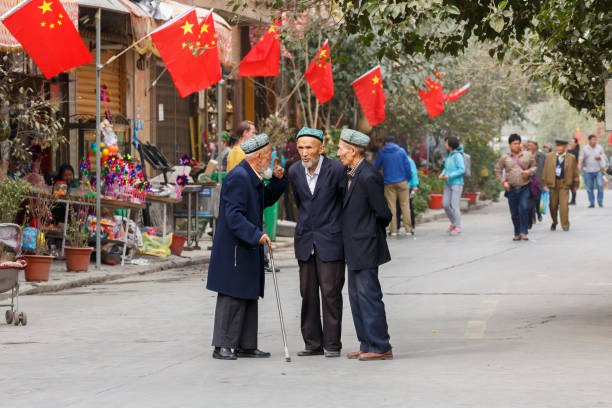BISHKEK (TCA) — Authorities in China have been sending thousands of Uyghurs, a Turkic ethnic minority group living primarily in the country’s western province of Xinjiang, to detention camps for political crimes like having extremist thoughts, Russia’s Sputnik news agency reports citing an Associated Press investigation.
Citing religious oppression and suppression of political expression, some Uyghur separatists have carried out acts of terror in Xinjiang and other parts of China over the last decade. Beijing has long been accused of trying to undermine religious observance in Xinjiang, and the latest program is seen as an effort to retrain Uyghurs’ thinking.
According to the Associated Press investigation, Chinese government documents describe the detention centers as “free, completely closed-off, militarized” areas where training sessions that can last three months to two years are conducted. There, Uyghurs learn “Mandarin, law, ethnic unity, de-radicalization, [and] patriotism.”
While detained, the Uyghurs must adhere to the “five togethers:” to live, practice drills, study, eat and sleep as one. “The government has referred to its detention program as ‘vocational training,’ but its main purpose appears to be indoctrination,” the AP noted.
The campaign to reign in Xinjiang’s alleged extremists has been led by Chen Quanguo, who was promoted to the top governmental position in Xinjiang after quelling unrest in Tibet — another Chinese area experiencing tension with Beijing.
Human Rights Watch reported in January that Tibet and Xinjiang are two areas where Beijing has committed its most serious human rights violations.
“Since 2011, authorities in Tibet have placed permanent teams of Communist Party officials in every religious institution to oversee daily management of religion… Another of Chen’s flagship policies in Tibet entailed a major expansion of surveillance mechanisms, from high-tech police posts at urban road junctions to making a single person responsible for the behavior of every five to 10 households; it will not be difficult for him to justify similar initiatives across Xinjiang to his bosses in Beijing,” HRW said.









